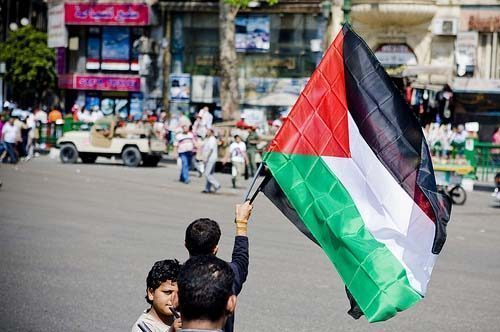
By Michael Stephens
There’s a good reason why traffic has gotten worse over the past few days: Most of the Arab World’s leaders are in Doha for the 24th Arab League Summit. Security is tight and Doha is once again the focus of Arab world politics. Apart from the traffic jams messing up evening commutes, here are three things to know about this summit:
1) Some headway has been made on the Syrian crisis. The Arab League has decided to recognize the Syrian National Coalition as the legitimate representative of the Syrian people. Sheikh Moaz AlKhatib, a popular former cleric of the Umayyad Mosque in Damascus, strode into the arena to popular applause this morning.
Although this does nothing at the present time to change the bloody carnage inside of Syria, it begins a process whereby the world can begin to envisage a political body the will exist after Bashar Al Assad finally relinquishes power.
The Arab League’s recognition of the SNC is the first step needed for the world to begin to enact political change in Syria. Simply put, without Arab backing, the coalition would lack the legitimacy needed for other countries to support a change in Syria. Giving the SNC Syria’s former seat will place more pressure on Russia and China to begin to accept that they must encourage Assad to do more to end the crisis and engage diplomatically with the opposition.

2) Palestinians may get some humanitarian relief. As ever, the plight of the Palestinian people looms large on the agenda. As the territories struggle to maintain economic growth in the face of population expansion and continued Israeli restrictions, the Arab League plays an important role in bolstering financial support for the fledgling nation.
Today, Qatar promised to contribute $250 million to a $1 billion Jerusalem fund to assist Palestinians fighting Israel’s creeping annexation of Jerusalem. If the Arab League is serious about delivering this aid soon, it will provide a shot in the arm for the Palestinians, and prevent the potential for infighting amongst the residents of Arab East Jerusalem. It does not hasten the end of Israel’s occupation, but it does allow for a lessening of the humanitarian problems that the Palestinians suffer daily and delays the prospect of their homes being taken from them.
3) Arab League reform is in the works. Many of you may have noticed the #DissolveArabLeague hashtag appearing on Twitter today. It is a reflection of genuine popular disenchantment with the Arab League as a collective body that can act to solve Arab problems. Seen as a talking shop that has done little to change the problems of the region, there is understandable frustration bubbling to the surface.
The sense at this summit however is that reform needs to happen, particularly with regards to forming a collective body on human rights, and even the suggestion of an Arab Security Council. These are big steps to take, but if the groundwork for a more active, engaged Arab League can be laid in Doha, this can only be positive. It could even lead one day to the dream held by Qatar’s Emir, Sheikh Hamad bin Khalifa Al Thani, of an Arab world able to take action to solve its own problems.
Michael Stephens is a researcher at the RUSI Institute in Qatar, specializing in the Gulf states, Israel and Syria.
Credit: Top photo by Michael Stephens; second photo by Hossam el-Hamalawy







